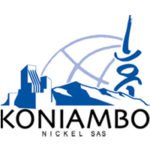
In view of the political exploitation of the Koniambo issue and as SMSP CEO, I would like to set the record straight and refute recent statements concerning the reasons behind Glencore’s decision to sell its stake in our joint subsidiary.
Neil MEADOWS, President of Koniambo Nickel, who knows the matter very well as he participated to the discussions in Paris, has already made it clear, in his statements on 28 February, that it was not the Northern Province’s refusal to open up the metallurgical reserves to export that was a factor in Glencore’s decision.
I have also participated, as SMSP shareholder representative, to the discussions during the week of negotiations in Paris that led to Glencore’s decision to sell its shares. As such, I am perfectly aware of what was the substance of our discussions.
SMSP is currently fully focused on the industrial and financial issues KNS has to face, like all operators in the market. However, as CEO of SMSP, it is my duty to protect our tool.
I therefore have legitimacy to refute the comments made by the Member of French Parliament METZDORF, who intends to convince New Caledonia’s populations, as well as the employees and subcontractors of Koniambo Nickel that if the NC Congress had voted to open up the metallurgical reserves, this would have persuaded Glencore to remain a shareholder in Koniambo Nickel.
As the President of Koniambo Nickel has already stated, and I confirm this, this point was never a factor in Glencore’s decision. It was never mentioned during the discussions in Paris.
As a reminder, the export of ore contained in NC metallurgical reserves is currently prohibited. Some people would like the law to be amended on this point, which would require a formal vote by Congress.
In addition, for everyone’s fair information and in order to bring closure to this matter, Koniambo Nickel and its infrastructure have the maximum capacity to release 700,000 tonnes of ore from the deposit, in addition to the quantities required for metallurgical production.
Following discussions between Koniambo Nickel and SLN, the latest expressed its wish to buy 450 000 tons of the above mentioned volume to feed Doniambo’s furnaces. These operations fitted perfectly in the current legal framework.
As such Koniambo Nickel has 250 000 tons of nickel ore that cannot be exported under current legislation regarding metallurgical reserves.
Who would seriously believe that the future of such a facility like Koniambo Nickel, and the massive investment it involves for New Caledonia, has been sealed over such a small quantity of ore that could not be exported?
This is absolute nonsense!!
As SMSP CEO, I would first and foremost like to protect Koniambo Nickel employees and subcontractors from this type of political stance and manipulation.
As previously stated, in these very challenging nickel market conditions, we need the strongest possible foundations to assist us in finding a new partner.
SMSP is committed to working hard for the safeguarding of this project and will always protect it against any groundless attacks it may be subjected to, now or in the future.
